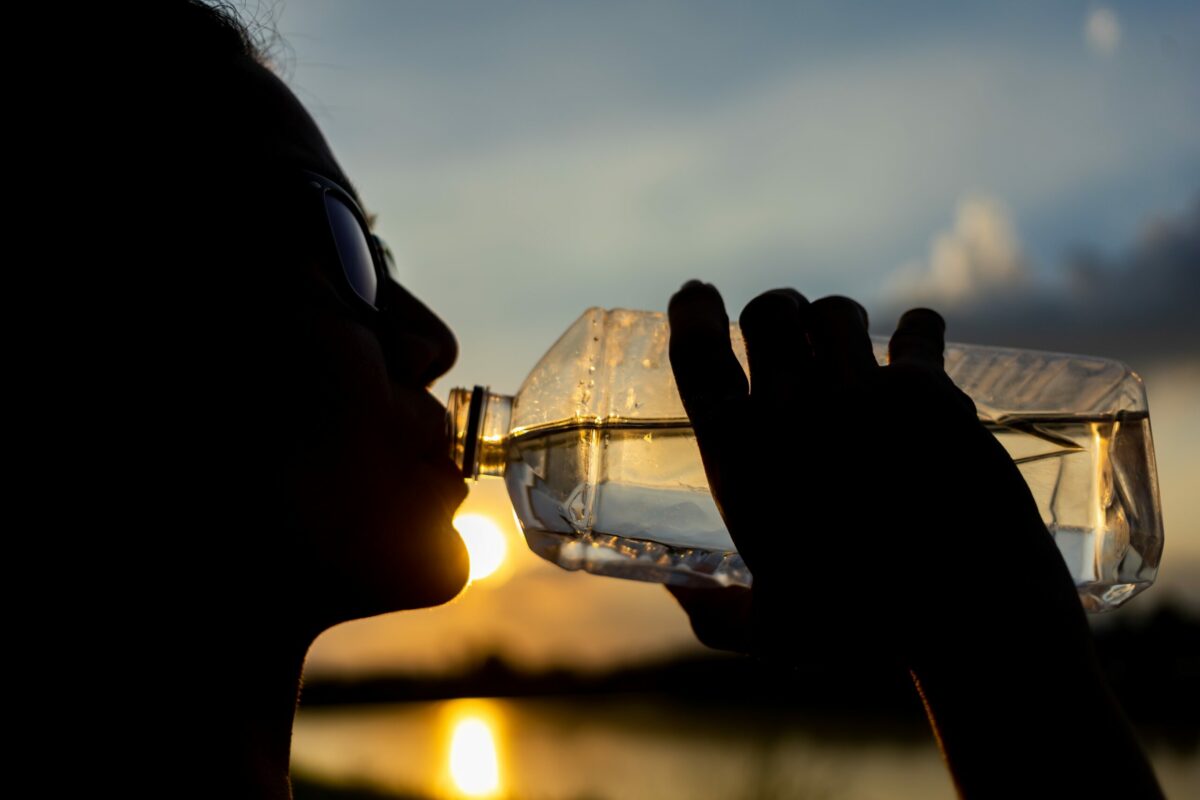When your body does not have as many fluids as needed, dehydration occurs. Therefore, your body cannot function properly and the common symptoms are dry mouth and tongue. Dehydration usually occurs due to sweating, diarrhea, and vomiting. Three types of dehydration are mild, moderate, and severe.
Mild Dehydration
Thirst, less peeing, sweating, and dry mouth can occur if you experience this type of dehydration. In children, mild dehydration occurs when they lose approximately 3%-5% of their body weight due to fluid loss. However, you can easily treat this type of dehydration by drinking water, electrolyte drinks, or oral rehydration solutions.
Moderate Dehydration
In children, this type of dehydration occurs when they have lost 6%-10% of body weight. In most cases, the symptoms are similar to mild dehydration but are more intense.
Severe Dehydration
Dizziness, sunken eyes, passing out, rapid breathing, and a pounding heartbeat may appear if you experience severe dehydration. A loss of over 10% of body weight may occur in children. However, talk to a doctor immediately if you experience any of the symptoms listed above.
Causes
To lose water from your body is a normal process. It occurs by sweating, breathing, peeing, pooping, and through saliva. Commonly, you replace the lost fluid by drinking fluids and eating foods. However, if you lose too much water and do not drink or eat, it may lead to dehydration.
In the following cases, you may lose more water than usual. For example, you experience:
- Fever
- Diarrhea
- Vomiting
- Excessive sweating
- Peeing a lot (use medicines including water pills also called diuretics)
- Diabetes
When you may not replace the water you lose?
In most cases, it occurs when you are busy and forget to drink enough or you do not realize you are thirsty. In some cases, you may not replace the lost water due to a sore throat or mouth, or if you are sick to your stomach.
Symptoms
Usually, the symptoms are different among people. It depends on the severity of the dehydration and its causes. Check below some symptoms of mild to moderate dehydration:
- Headache
- Dry and cool skin
- Thirst
- Muscle cramps
- Appetite changes (such as sugar cravings)
- Flushed skin
- Chills
- Constipation
- Hypotension (low blood pressure)
- Not peeing very much
- Dry cough
- Lack of sweating
Symptoms of severe dehydration include:
- Very dry skin
- Sunken eyes
- Passing out
- Drowsiness or irritability
- Rapid breathing or heartbeat
- Lack of energy
- Confusion
- Dizziness
- Very dark yellow pee
Check below some symptoms that occur in babies and your children:
- No tears when crying
- Dry mouth and tongue
- Sunken eyes, cheeks, soft spot on the top of the skull
- Wrinkles skin
- Deep rapid breathing
- Cool blotchy hands and feet
- Sleepiness
Risk Factors
While everyone can get dehydrated, some people are at higher risk. For example:
- Babies and young children
- Older adults
- People who are ill
- People with chronic diseases or who are active outside
- People in high altitudes (air is drier at high altitudes such as 8000 or more feet above the sea)
Complications
If you are not drinking enough fluids, dehydration may lead to some complications. It commonly occurs due to low blood flow, which causes your organs to not work well. Check below some examples:
- Shock
- Brain swelling
- Coma
- Kidney failure
- Seizures
- Heat exhaustion or heatstroke
In some cases, if you leave dehydration untreated it can be deadly. In addition, if you are drinking too much fluid trying to hydrate yourself, it may lead to swelling in the limbs, and fluid will build up in the lungs.
Furthermore, serious health problems may appear if you get dehydrated during pregnancy. For example little amniotic fluid, premature labor, and a lack of breast milk.
Treatment
Your health needs to stay hydrated including eating, exercising, and sleeping well. The following tips can help you to stay hydrated. For example:
- Drink water before each meal
- Add a slice of lime or lemon to your water
- It is advised to take a bottle of water whenever you go to refill when needed
- Use water instead of sugary, alcohol, and caffeinated drinks
- Drink water as soon as you feel thirsty
- You can add more water-rich foods including fruits, vegetables, and soups to your diet
Regular drinking water and eating water-rich foods can help to prevent dehydration. In any case, moderate and severe dehydration usually requires a healthcare professional help.
Frequently Asked Questions
What are the most common symptoms of dehydration?
Dry skin and lips, thirst, dark pee, and tiredness are the most common symptoms of dehydration. Consult with a doctor if you experience any of them.
What is the fastest way to cure dehydration?
Electrolyte drinks and water are the fastest way to cure mild dehydration. However, if you experience moderate or severe symptoms, consult a doctor right away. Discuss with a healthcare provider for more details
What are dehydration complications?
In most cases, mild dehydration should not give you long-lasting effects. In any case, severe dehydration may cause mental function problems, kidney failure, hypotension, and others.



